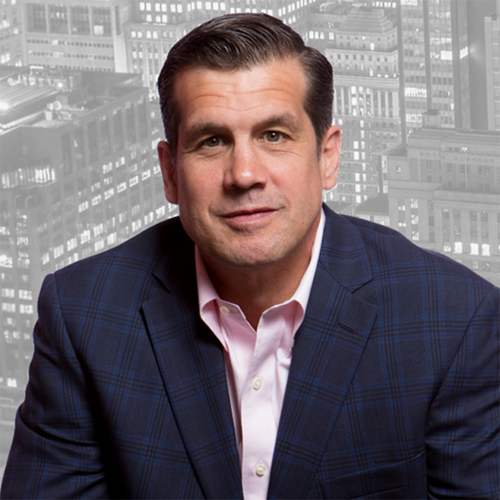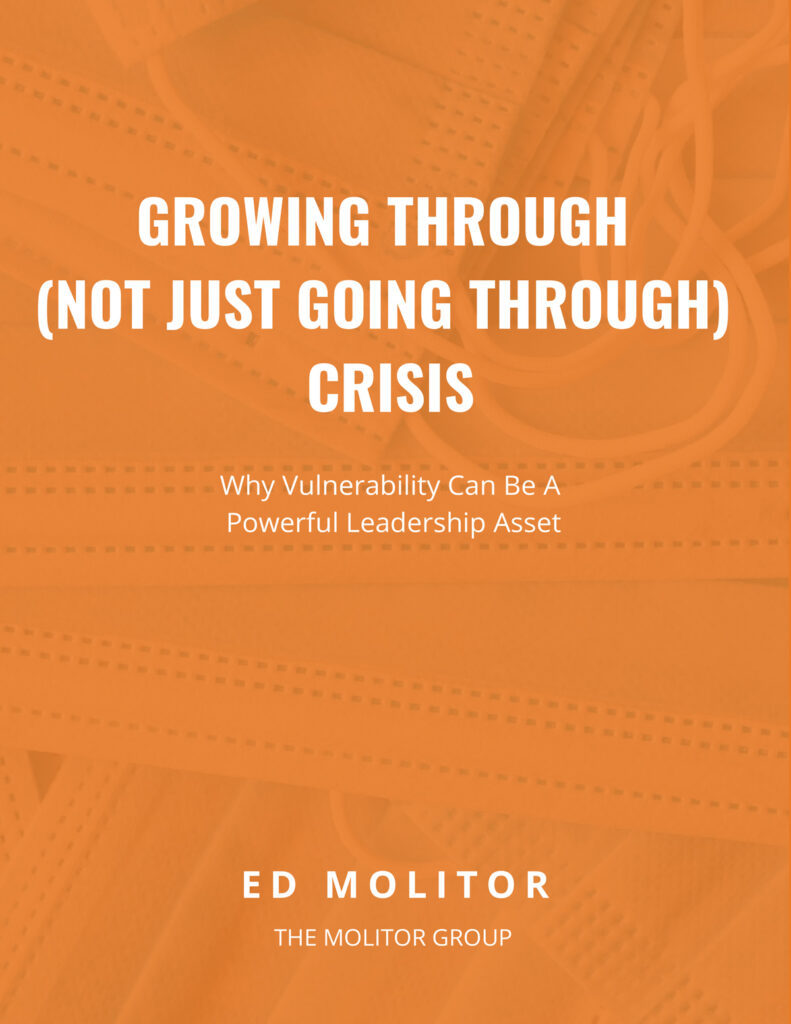In the last 26 years, Ed Molitor has developed his leadership skills in both athletics and business. From working as an NCAA Basketball coach at Texas A&M to becoming the Vice President of a national recruiting firm, Ed has taught countless athletes, coaches, and business leaders how to THINK, ACT, and EXECUTE at an elite level. Ed has a unique set of skills to deliver leaders across the country a purposeful, positive, energetic, and refreshing experience to unlock their true potential.
In 2016, Ed launched his company, The Molitor Group, in order to reach and add value to a larger sphere of ambitious individuals and help them achieve their goals every day. Through The Molitor Group, Ed has guided all types of leaders to achieve success. From entrepreneurs and executives to teams and companies, The Molitor Group specializes in empowering individuals and groups to achieve at the next level. Through Leadership Performance training, coaching, and speaking, Ed’s goal is to supply people and organizations with the necessary tools to move forward from where they are now to where they want to be.
The Impact of Quality Jobs (1:00)
The definition of a coach is someone in a position of authority over others. They can be everything from CEOs, directors, and athletic coaches and are the primary factor of their workplace environment.
Employees want three things: they want to know that they are valued, they want to know that the work they do has meaning, and they want great coaching.
- 89% of bosses believe employees quit because they want more money, while only 12% report leaving for that reason.
- 57% leave jobs to get away from their managers.
- 58% of people say they trust strangers more than they trust their own boss.
Only a reported 15% of the global workforce is engaged with their jobs. Engagement means they like what they do because they're developing rich missions and purposes.
Not to mention, people with great jobs have different life outcomes:
- Grow their business and inspire teams.
- Solve problems instead of creating them
- Volunteer for their communities.
- Better health, wellbeing, and quality of their personal life.
Fostering Great Workplace Culture (4:45)
When most CEOs and high-level leaders see that data, it leads them to ask what changes can they make to align their workplace culture with what their workforce wants to keep them engaged. The interesting part is Gallup's finding that the manager determines 70% of team engagement.
Clever benefit packages, remote working possibilities, trip incentives, flexible hours, and cool gifts are great, but they don't change growth outcomes. What does is your ratio of great to lousy managers.
If you have 30 managers, and of those managers, 30% are great, 20% are lousy, and 50% are mediocre, you'd reach about the national average of employee engagement in the US. Nothing could sustainably and authentically change the value of your organization more than improving that ratio.
Great managers can maximize the potential of every team member they manage and deliver the best job and life imaginable for today's workforce. People want a coach, and they want a coach able to impact their life.
The Perfect Coach (8:30)
Several days ago, Ed was asked a question he had a lot of fun answering: if you could build the perfect coach in terms of a front-line leader in a business setting, what would that look like?
First, there is no such thing as a perfect coach. The best kind of coach can recognize their flaws and continue to work on them while leveraging their strengths. Second, they are passionate about their opportunity to impact their peoples' days because they understand their workforce's experience at work will affect every area of their life- family, health, livelihood, etc.
A great coach is value-based and purpose-driven. They align themselves completely with their singleness of purpose and communicate it to their workforce in their team's shared language. In doing so, they contribute to their team's overall psychological safety.
Psychological safety does not necessarily mean being a soft leader. Ed's ideal coach would have a tireless work ethic, consistent focus on building resiliency, and would play to win in every aspect of their lives. They would set high standards they hold not just their teams accountable to, but themselves as well, and have the ability to take the journey alongside their team members. They understand people, what motivates them, their performance and leadership style, and building relationships. They are fun to work for, yet know when to push their people outside their comfort zone or pull back into encouragement and support.
Everyone will know what the best coach stands for and what to expect daily: positive energy, positive attitudes, empathy, enthusiasm, directions, creativity, and resilience. Their team would understand they are in with them, not alongside them, and values commitment over interest, conviction over complacency, and winning over losing.
An ideal coach is focused on the development of others and not only interested in talent. They do everything in their power to set their team up for success, will know what success means to them, and how to define victory.
Becoming A High-Impact Coach (13:00)
Ed believes a team is a direct reflection of their coach and whatever qualities their coach embodies. High-impact coaches inspire their team to achieve things they never thought possible and build a culture worth fighting for. Not only do high-impact coaches attract the top talent, develop and retain the top talent, and get them to fight for each other to win.
The first step is identifying strengths and where you have gaps in your coaching. Additionally, take the Athletics of Business Assessment to see where you fall in victory-driven leadership.
Some of the best athletic recruiters Ed had were current and former players because they could share their experiences and the differences they made in their lives. Looking back on the stories we tell from years ago, they are almost always shared moments and not about the games.
Good coaching is a responsibility and an honor. But, to do it, you have to commit yourself to consistently working on your own game. If you want your people to have grit, you have to have grit. If you want them to have a positive attitude, you have to have a positive attitude. And you have to work every day to exceed your own standards.
What you'll learn in this episode:
- What employees want in a job and why they often leave.
- What the perfect coach looks like.
- How to foster better workplace culture.
- How to become a better coach.
Additional resources:



